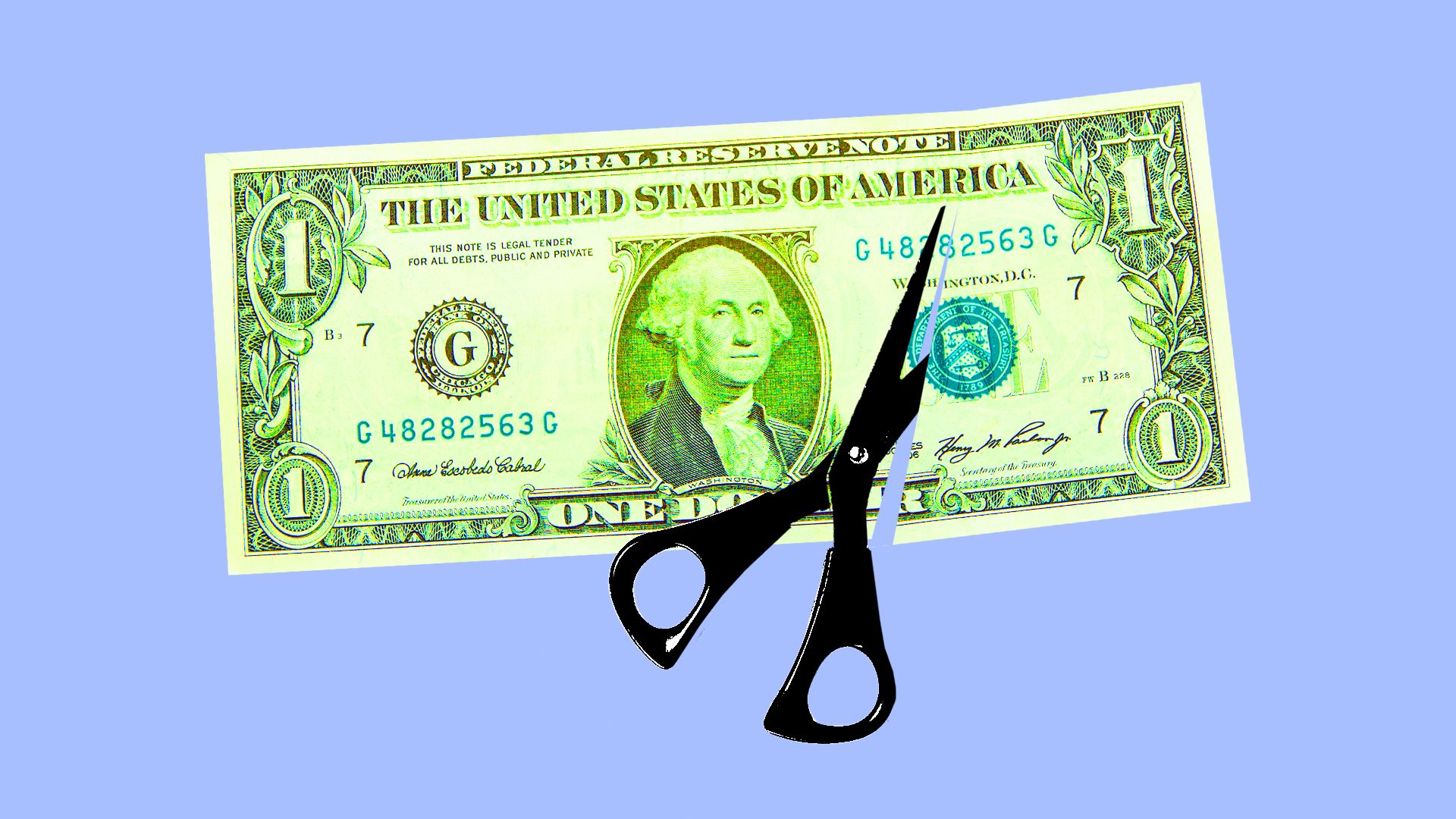Record low rates could exacerbate debt, housing issues
Add Axios as your preferred source to
see more of our stories on Google.

Illustration: Rebecca Zisser
The stock market selloff has drawn the most attention this week, but moves in the U.S. government debt market will likely have much more important impacts on the economy.
The state of play: Mass bond buying has taken place since the beginning of the year and picked up steam as headlines about the spread of novel coronavirus have grown more worrisome.


Why it matters: The yield on the 10-year U.S. Treasury note, which hit a new record low on Wednesday, is tied to the rates on mortgages, student loans and more. As it declines, credit gets cheaper and more attractive to both individuals and businesses.
- Americans already have more debt than at any time in history and low rates are likely to fuel an even greater increase.
- That could help buoy the economy through the current coronavirus scare, but also adds to outstanding risks.
What to watch: The interest rate for federal student loans are recalibrated once a year to take into account changes in the government's borrowing costs.
- The auction that sets the rate will happen on May 12. If yields remain near their current levels, student loan interest rates will be set at all-time lows for the 2020-21 academic year, analysts at Credible Insights say.
By the numbers:
- If the 10-year yield stays near its current level, undergrad rates would be 3.35%, down from 4.54% today.
- Grad students (direct subsidized loans): 4.90%, down from 6.08% today.
- Grad and parent PLUS loans: 5.90%, down from 7.08% today.
That would likely encourage more students to take on loans, adding to the inflated level of outstanding U.S. student debt, currently totaling $1.6 trillion.
Also important: Mortgage rates, already near record lows, are primed to drop further, adding to the wave that prompted the highest pace of new U.S. home sales since July 2007 last month.
- Housing affordability has become a serious worry as prospective homeowners continue to report difficulty finding a home with a reasonable price tag.
- Rising prices have pushed a growing number of Americans, especially on the West Coast, to live in vehicles, according to the Wall Street Journal.
Watch this space: Businesses, especially U.S. banks, have been taking advantage of low interest rates and easy money from the Fed for years, but that has masked a decline in net interest margins, S&P Global warned on Monday.
- "[L]ower interest rates could lead to more risk-taking (perhaps adding to already high commercial leverage). Separately, we expect banks' capital ratios to decline somewhat as they continue to pay out significant chunks of their earnings to shareholders."
Go deeper: The end of the magic stock market
